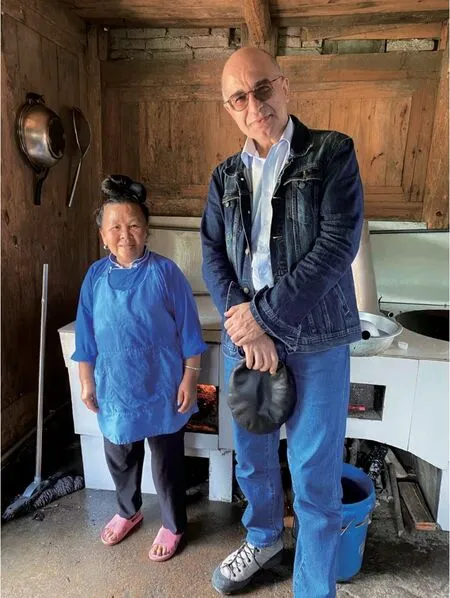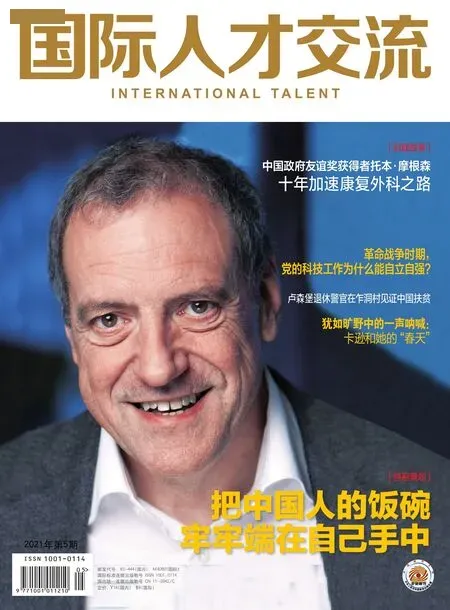Food Sustainability in a Large Scenario
By Paolo Vincenzo Genovese (Italian)

Investigation of the living habit and living condition of MiaoZu minority group. The Eco-Village strategy include many aspects. One of them is the process of the life. The local villagers have a very complex system of relationship based on traditional habit and traditional form of life. The food provisioning and the food processing is extremely natural.This is based on a true close-cycle of food provisioning, food processing and food recycling.
Eating a good meal is not simply an issue to fill our stomachs, but also, it concerns a geopolitical issue. This is not an exaggeration, but a logic consequence of the undeniable truth which asserts the notion that “food is life”. Exactly for the reason that food concerns a fundamental issue related to the living conditions of all creatures upon this world, every possible strategy on food has to be considered at the global level. In the past years, there were a lot of concerns related to what was known as “the war of water”, and the military and social conflicts related to the management and economy of the water.
What appears extremely critical in most of the study is the scarcity of food. Apparently, we are not talking specifically on China or on any other country in particular, because our discussion is global. This suggests that particular nations could be extremely rich in terms of food quantity, quality and tradition, but the fundamental problem that several authors intend to point out concerns food on a global scale. According to our understanding, food production should not be simply considered in terms of problems related to agriculture,but also to problems related to economy and even more to energy.
We can briefly summarize this topic a few important concepts: In order to produce food, we need land and energy. We need energy to transport food. We need energy to cook and process food, and we need energy and land for waste disposal. About energy, the discussion was already illustrated many years ago by some good and simple essays concerning the quantity of energy necessary to produce food. And energy use produces CO2. According to the Environmental Working Group Meat Eaters, the following are the data:
World Bank reports much more severe data. For example, only for the production of sugar cane delivered to the refinery we are talking about 26 up to 210 kg CO2e per ton (according to different factories line production).But if we add the process of refinery, transportation and transit, we reach a value between 400 to 2100 kg CO2e/t.For fresh pineapple, 0.23 kg CO2e per kg but it reaches 1.3 kg CO2e/kg of jam at the import port.
There is another important geopolitical issue that has to be considered in relationship with food. In order to produce food, we need land. This is obvious, but it is much less obvious the consequence in terms of land use.In many countries, there is a dramatic shortage of land which could be utilized for agriculture production. This is particularly severe nowadays for the progressive desertification, uncontrolled expansion of cities and also the increasing of floods that have adverse effects in several parts of the world. Moreover, there is an additional issue to be mentioned: The massive use of pesticides and chemical agents in agriculture contaminate a large amount of soil around the world. Without going into details, we have also to be clear that there is a radical difference between agriculture land and arable land. The data referred to the two kinds of land could be very different.
Due the complexity of the problem and the fact that this tendency is global, there are partial strategies that may work, and surely work well. We propose three possible strategies that we discussed in our other publications.The first proposal concerns the Eco-Village approach and the Zero-Kilometer strategy of food production.In this direction, the small communities based on Eco-Village approach consume only food that they are able to produce themselves. It is too simple, it is even too basic for our civilized world, and we may agree that it is unfeasible for the large metropolises and megalopolis around the world. But it is a fact that the Zero-Kilometer strategy works well.
The second proposal is the idea of a real Circular Economy. We intend Circular Economy in the only possible definition: a local-to-local integrated system of production and consumption, where the waste of one chain become the resources of another chain. In many recent studies about this topic it were proposed ideas which create confusion between an economy based on recycle and a Circular Economy. The two ideas are different, while the second concept is much more difficult to reach than the first one. An example of Circular Economy applied in our field is when there is a strict connection between the human settlements and the agricultural land in the neighbourhood. In our specific example, the agriculture land almost coincide with the arable land and the food is produced, consumed and recycled locally. The concept of recycling is quiet clear in literature and it concern the possibility to reduce the waste by recovering and reprocessing usable products and materials from a previous cycle. This creates a virtuous natural cycle between human settlement and agriculture field. But a rule has to be settled: at the level of Eco-Village approach the system of production have to be based on micro-economy—local, small and sustainable—and every macro-economy is simply unfeasible for this strategy because based on globalization.
The last proposal is not scientific but cultural and we can summarize with the formula: «Eat less and eat better». In most of the cases, the food production is related to industrial products, or the big food chain fast food,but not only. They are very poor in terms of quality and nutritional value. This is why people need to eat a lot.On the contrary, a very good diet, based on good quality of products is more nutrient and consequentially the human being needs less quantity of food. When the taste is rich, the time of consumption of food is longer,because, overall, we have to remember that food is art!
For food sustainability of all human being, we should consider food production in terms of economy and culture, except for arable land and high-efficiency agriculture. (The author is Professor of School of Architecture,Tianjin University)

